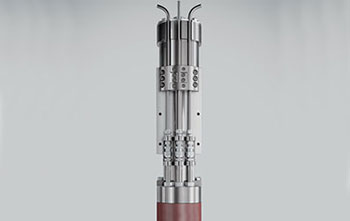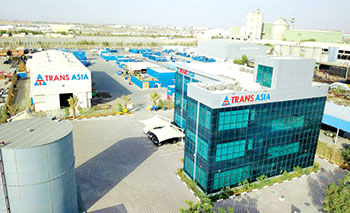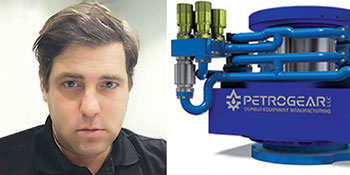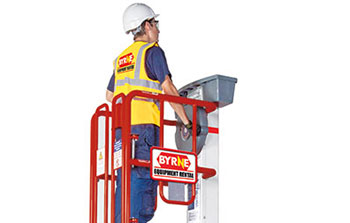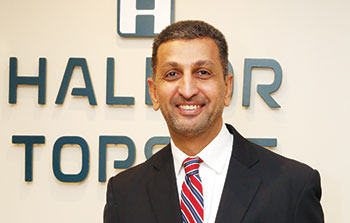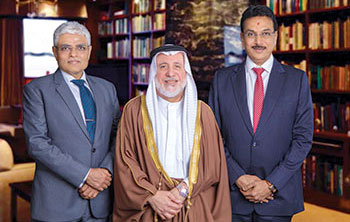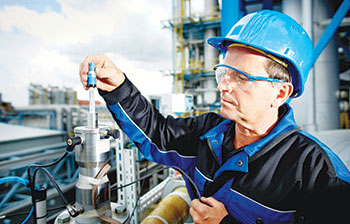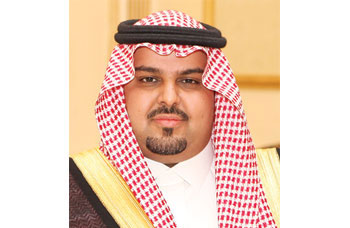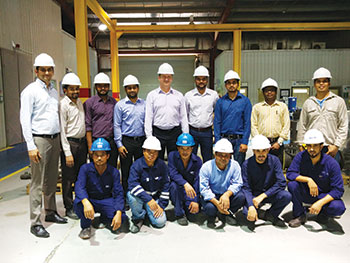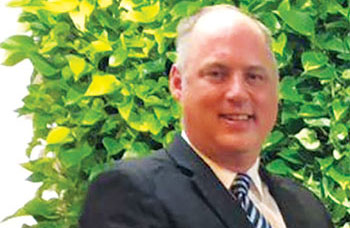
 Shaw ... optimistic
Shaw ... optimistic
The company, which has completed 11 rig projects this year with several still under way, says the the ship and rig repair side of its business has proved successful in maintaining its position as the yard of choice in the Arabian Gulf
Bahrain-based Arab Shipbuilding & Repair Yard (Asry), a leading ship and rig repair facility in the Arabian Gulf, feels that it is eminently poised to offer its expertise to process of extraction from the huge tight oil reserves discovered in the kingdom recently.
"Being the largest and most experienced maritime engineering facility in country and in the region, and considering the offshore challenges that are tied up with the location, we are well-placed to contribute to the overall success of the extraction.
"Therefore we are currently making sure that all the stakeholders are aware of the broad range of services we can provide, not just in construction and engineering, but also transport, logistics, storage, and of course repair and maintenance," says Asry CEO Andrew Shaw.
In the short-term there will be a direct impact (from the discovery) as there is already activity regarding appraisal drilling, and all the associated infrastructure and support services that it will bring, he says.
In the medium term, the final solution for extraction will no doubt bring significant benefits to the Bahrain-based engineering and construction players. It is reassuring to learn that this discovery is being viewed as an opportunity to bring long-term benefits to the kingdom by using local players such as Asry for some aspects, rather than outsourcing it entirely to global contractors, Shaw observes.
Referring to the performance of Asry’s rig division, Shaw says the rig business has accelerated through the year, with delays in re-activations of rigs making the first quarter slower than expected, and exceeding the company’s expectations in the third quarter.
Overall, however, Asry remains the preferred destination for operators to get their assets compliant with Saudi Aramco’s standards, particularly Schedule G.
"We’ve completed 11 rig projects in 2018 with several still under way, as compared to a total of 16 in 2017, and revenues have increased which reflects a more buoyant attitude amongst our clients," he points out.
For Asry, which is going through a restructuring process, the ship and rig repair side of the business has proved successful in maintaining its position as the yard of choice in the Arabian Gulf.
"We are also reconfiguring various aspects of how we service defence sector clients such as the US Navy, the Royal Navy and the Bahrain Naval Force to ensure that we can accommodate their increasing marine activity. However, it is our engineering, fabrication and construction capabilities where we believe we can really add value to the oil and gas industry," he says.
Asry’s new Fabrication and Engineering division is currently focusing on Bahrain-based projects, and has already been in extensive talks with national operators such as Noga, Bapco and Banagas to share with them how Asry’s expertise lends itself ideally to their upcoming engineering, fabrication and construction needs, Shaw notes.
It is a natural progression for Asry. The essential elements – steel work, piping work, mechanical work, etc - are already part of Asry’s DNA as they are key elements in the company’s ship and rig repair business.
"Now we are deploying those years of expertise as their own independent revenue stream. Over the past 40 years, Asry has established itself as a leader in maritime repair, and now there is an opportunity to establish ourselves as the leader in the engineering and construction sector in the Arabian Gulf," he says.
Referring to Asry’s scope of works on the subsea section of the new wellhead platform that was commissioned by Bapco and Schlumberger, Shaw says the project was a good example of Asry re-deploying its current skill set into new sectors with great success.
The construction of the conductor deck platform and subsea section for the new wellhead platform was commissioned by Bapco and Schlumberger through 2H Offshore, the engineering contractor.
The components had to conform to global standards as they constituted parts of an appraisal well that Schlumberger was contracted to install and leave free standing for a period of 20 years.
The system consisted of a conductor-supported, minimal facility top side, suitable for personnel access by boat, with access to a well head, tree and offloading capability via an offloading flexible hose, he adds.




















































































